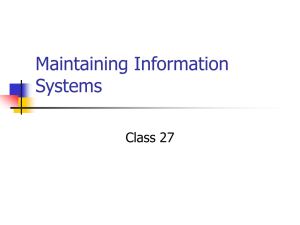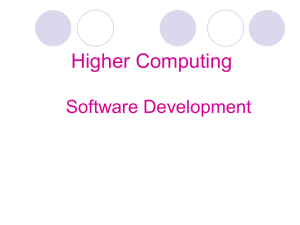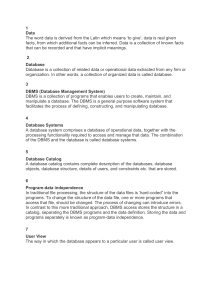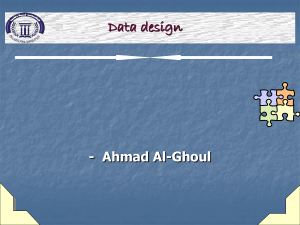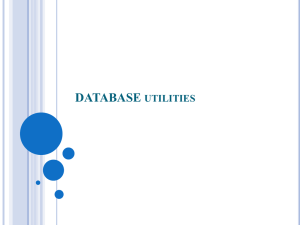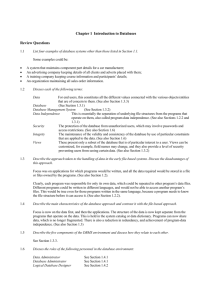Database Management System - Bapatla College of Arts & Sciences
advertisement
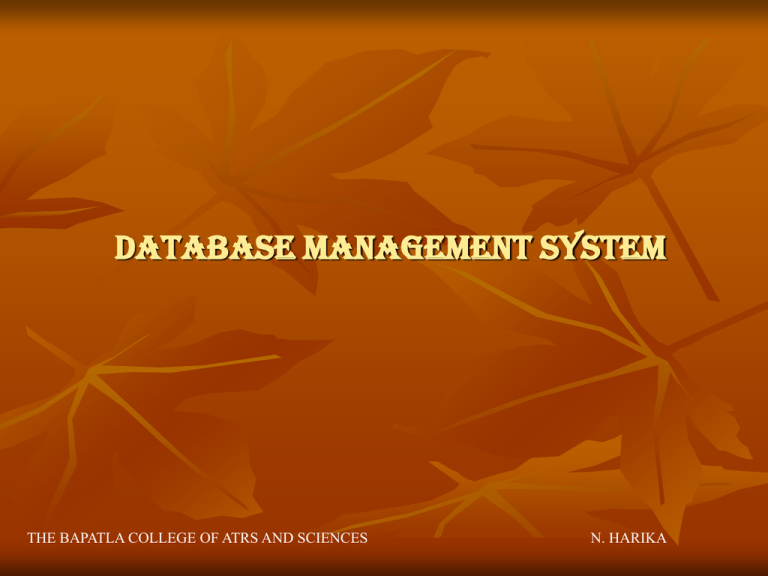
Database management system THE BAPATLA COLLEGE OF ATRS AND SCIENCES N. HARIKA DATABASE SYSTEM ENVIRONMENT A database system environment of an enterprise consists of five components: Hardware Software People or Users Procedures Data HARDWARE Hardware refers to all of the system‘s physical devices. Example: Computers( Microcomputers, Workstations, Servers) Storage Devices( Primary and Secondary storage) Printers (Dot Matrix, Inkjet and Laser) Network Devices ( Hubs, Switches, Routers) Other Devices ( Card Readers, Barcode Readers) and Connecting cables SOFTWARE Operating System Software: It manages all the hardware components and makes it possible for other software to run on the computers. Examples: Unix, Microsoft Windows, Linux and Mac OS. DBMS Software: It manages the database within the database system. It provides a number of services to end users and programmers. - Data security and integrity mechanisms. - Concurrent data access for multiple users. -Examples: Microsoft SQL Server, IBM DB2 Application programmers and utility software: They are used to access and manipulate the data in the DBMS and to manage the computer environment in which data access and manipulation takes place. PEOPLE On the basis of primary job functions, five types of users can be identified in a database system. System Administrator Database Administrator Database Designers System Analyst and programmers End Users System Administrator: They overview the database system’s general operations. Database Administrator: DBA manages the DBMS and ensure that the database is functioning properly. The DBA role is sufficiently important in Database Administration and security. Database Designers : They design the database structure. System Analyst and programmers: They design and implement the application programs. End Users: They are the people who use the application programs to run the organization’s daily operations. PROCEDURES procedures are the set of instructions and rules that govern the overall design of the database system. Procedures play an important role in a company because they enforce the business standards of an organization. DATA The word data covers the collection of facts stored in the database.

